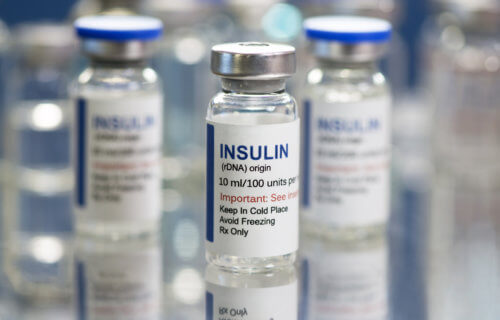DALLAS, Texas — For diabetes patients, managing their insulin can be a daily chore. Now, a team from UT Southwestern Medical Center says a new injectable insulin therapy that only requires application once per week is safe and just as effective as daily insulin shots. Researchers conducted two international clinical trials to arrive at this conclusion.
These results suggest this new treatment may revolutionize day-to-day life for millions of people. Currently, patients with type 2 diabetes need insulin injections every single day. Furthermore, current insulin injection routines are challenging and offer middling results for a number of reasons. Many patients fear their daily injection, others say it’s too much of an inconvenience. On top of all that, a number of factors influence the effectiveness and safety of current insulin injections, including accuracy of dosages, timing, and glycemic targets.
This new therapy may simultaneously reduce hesitation among patients and improve long-term adherence, glucose control, and patient well-being.
“Insulin, which has been the foundation of diabetes treatment for 100 years, is an effective glucose-lowering agent and is safe when used at the correct dose,” says Ildiko Lingvay, M.D., M.P.H., M.S.C.S., a professor of internal medicine and population and data sciences, in a university release. “Insulin treatment is burdensome, requires frequent injections, and continues to carry a certain stigma. The development of an effective and safe insulin that can be administered once a week is a huge advance in the field.”
‘Game-changer’ may decrease treatment burdens
One trial involved 205 people from the United States, Croatia, Germany, Hungary, Slovakia, Spain, and Poland. The entire process included two weeks of screening, 16 weeks of treatment, and a five-week follow-up period. Researchers carefully planned out the treatment schedule to determine the ideal way to adjust and optimize insulin doses. In other words, which dose provides the best “balance” between lowering glucose while also keeping low-glucose events to a minimum.
The second trial featured 154 patients from the United States, Canada, the Czech Republic, Germany, and Italy. It followed the same general scheduling layout as the first trial, but also focused on the best way to transition from an everyday insulin shot routine to once-per-week. Ultimately, researchers concluded that a higher first dose allows patients to attain their optimal glucose target faster.
“These two studies served as the steppingstones for a large phase 3 clinical trial program that is currently ongoing at UT Southwestern and other sites, which is designed to evaluate the efficacy of once-weekly insulin administration in patients with either Type 1 or Type 2 diabetes,” Lingvay concludes.
“A weekly insulin is a game-changer that will decrease the treatment burden for patients while also improving compliance. This treatment will also decrease the burden on those who care for patients with diabetes requiring insulin. For example, for patients who need help injecting, those living in long-term care facilities, and those with memory problems, a once-weekly insulin will facilitate treatment and decrease the burden on the care providers.”
The study appears in the journal Diabetes Care.
